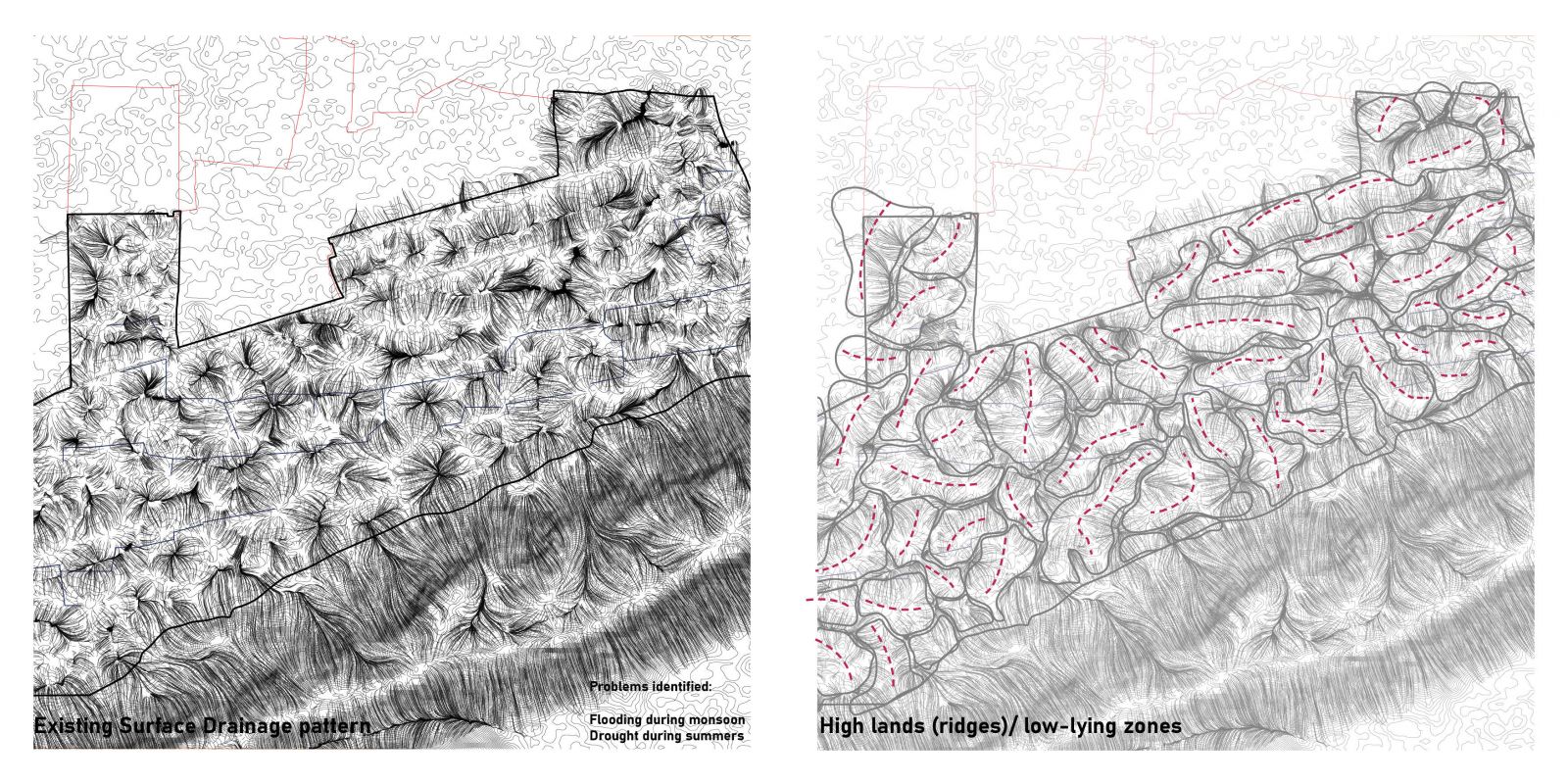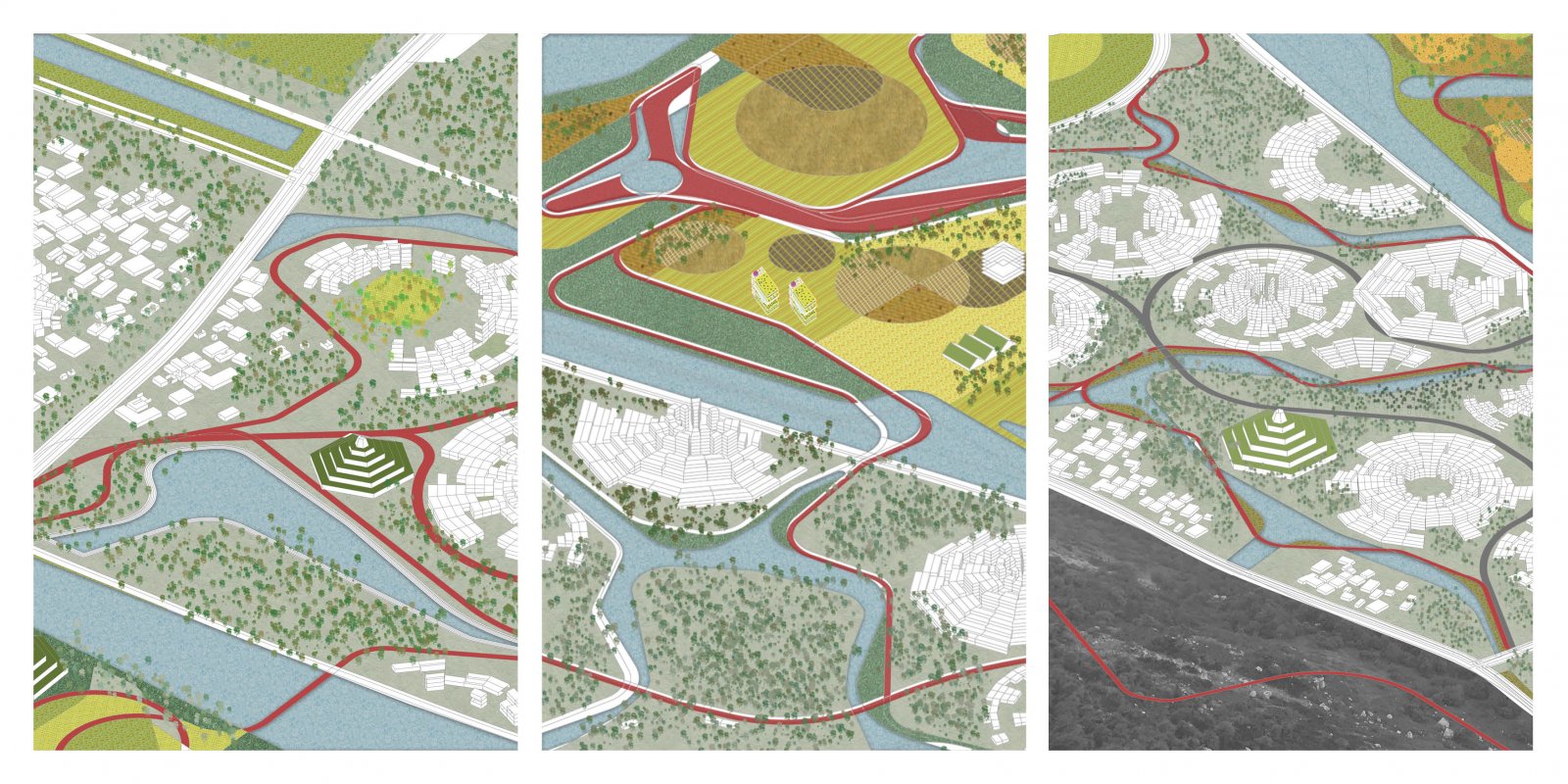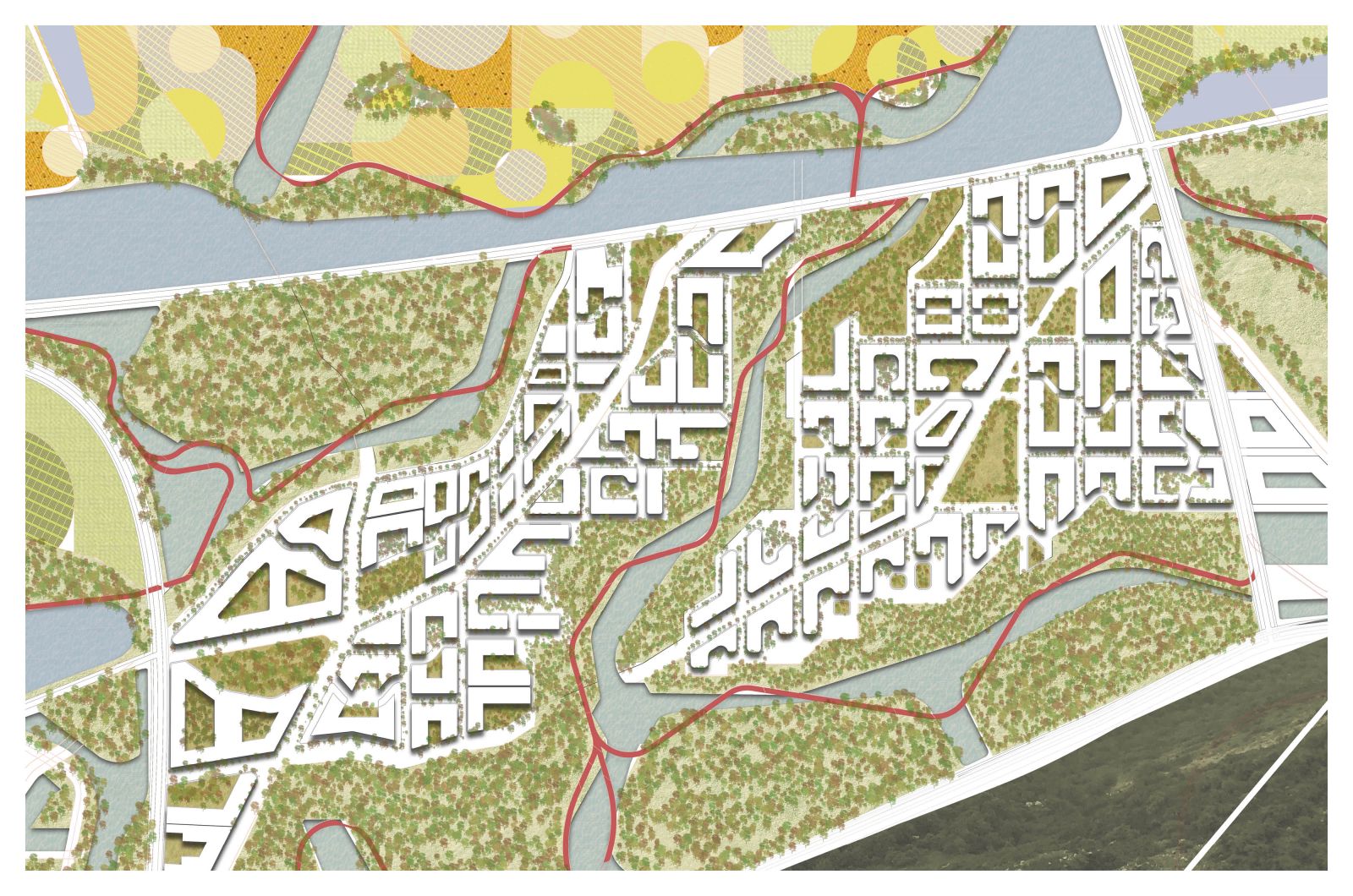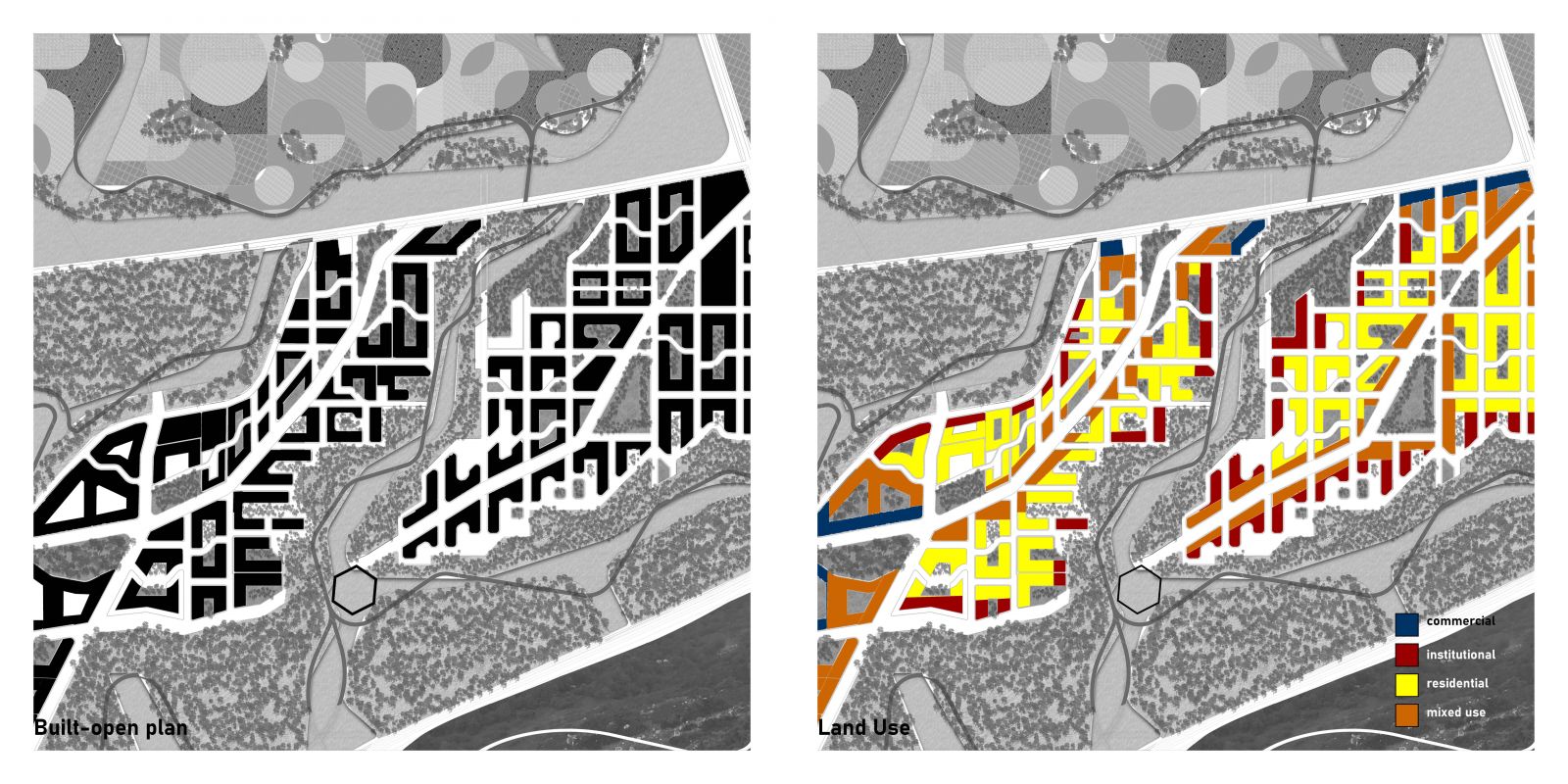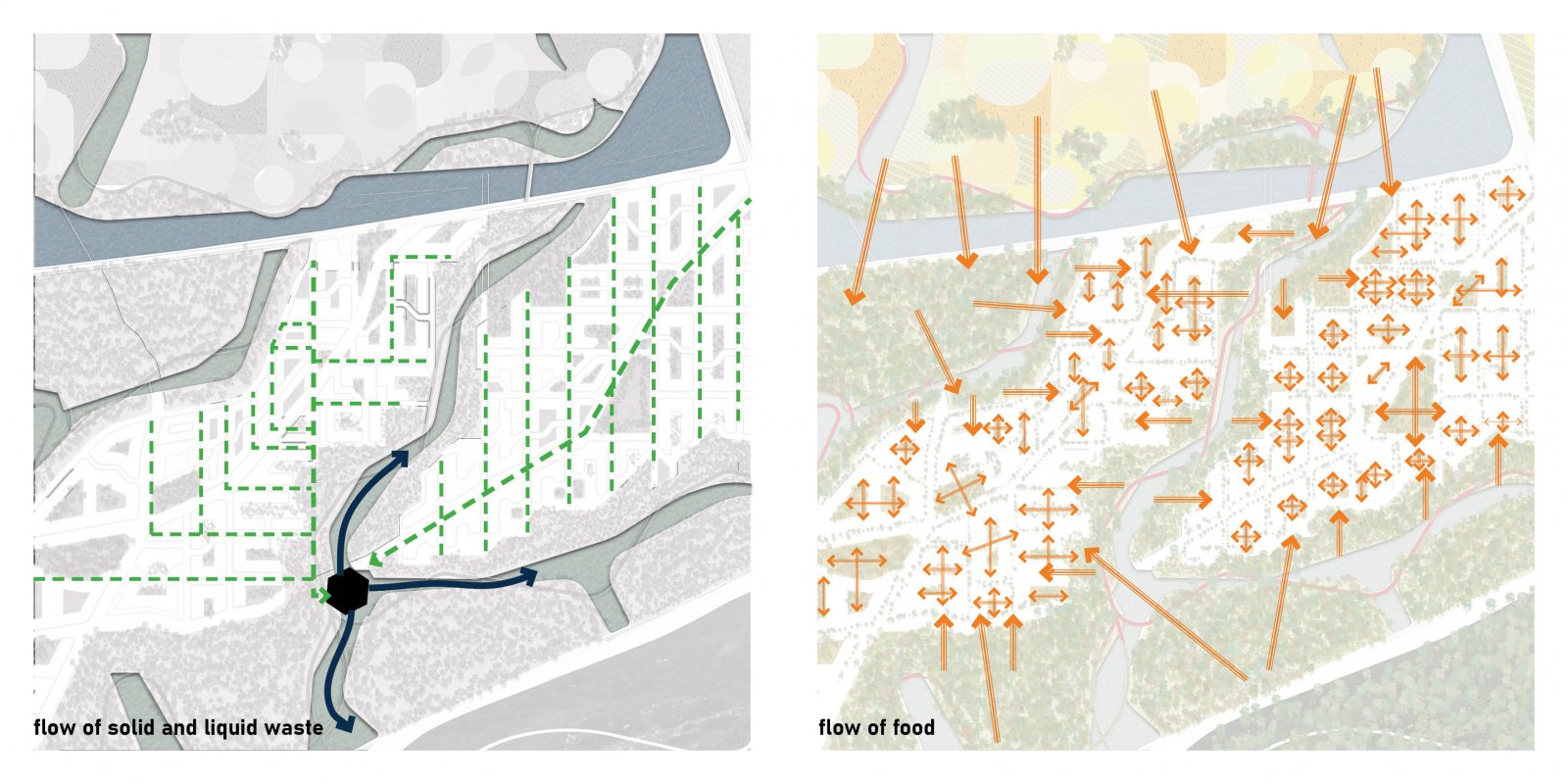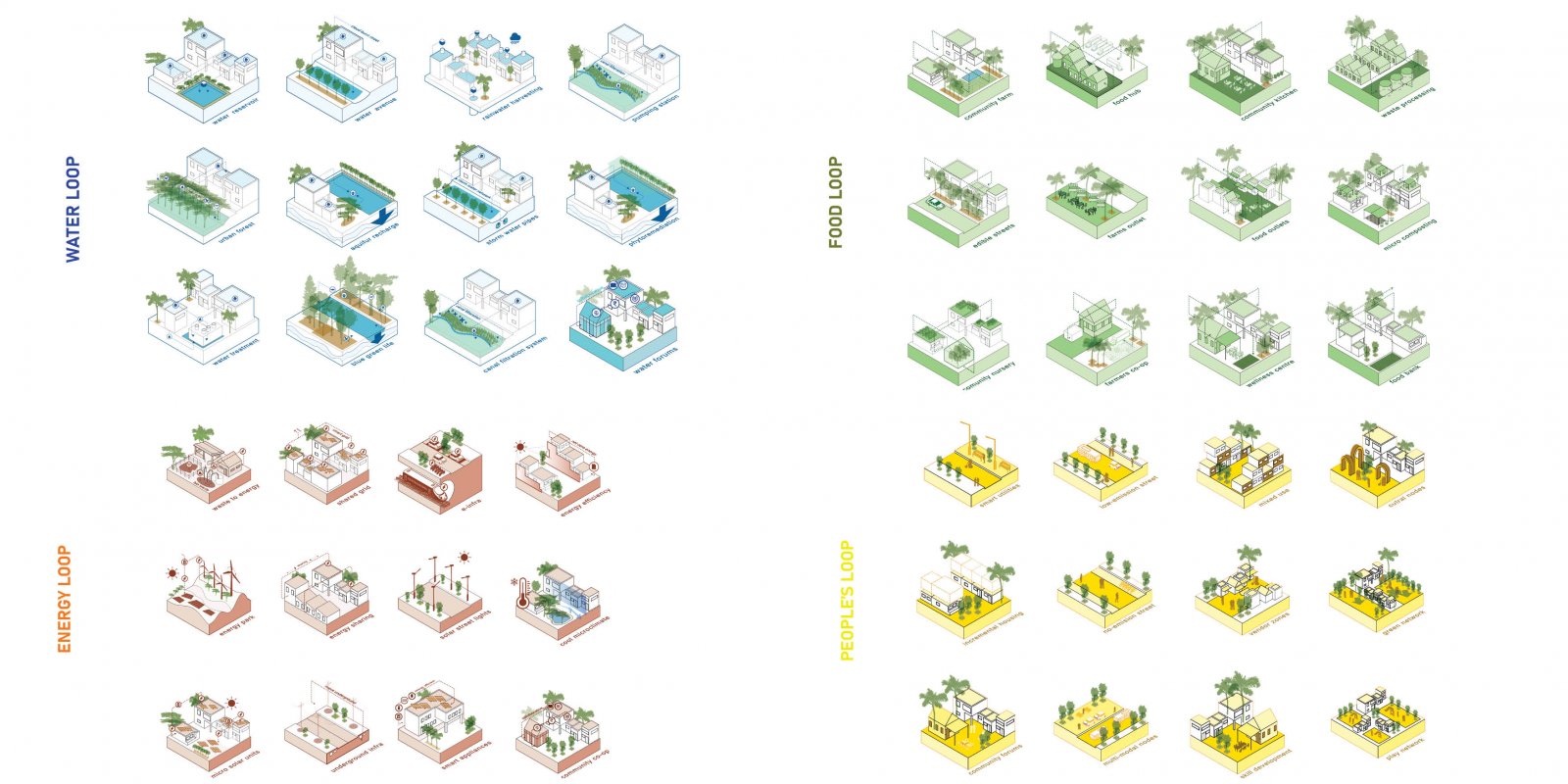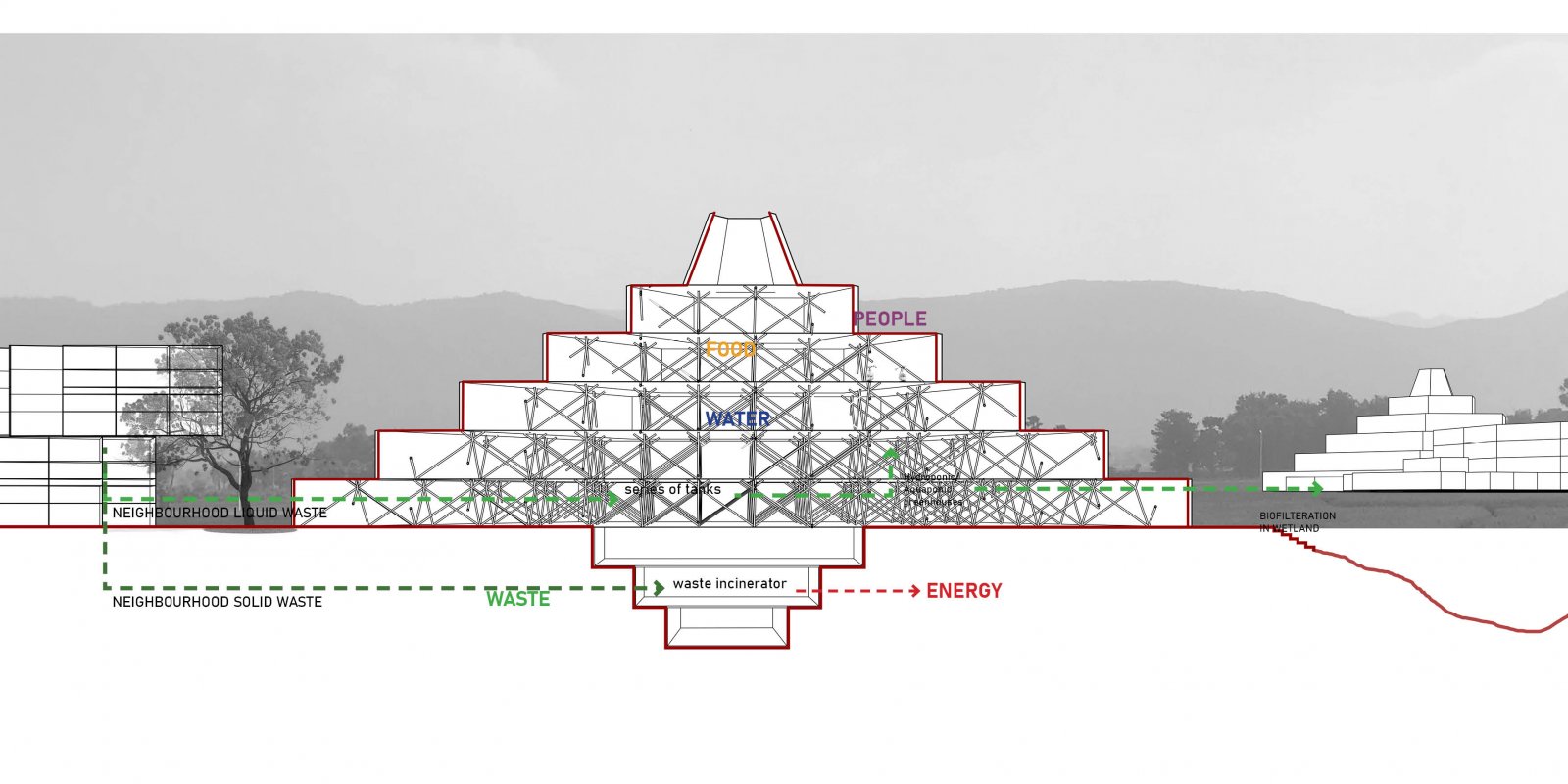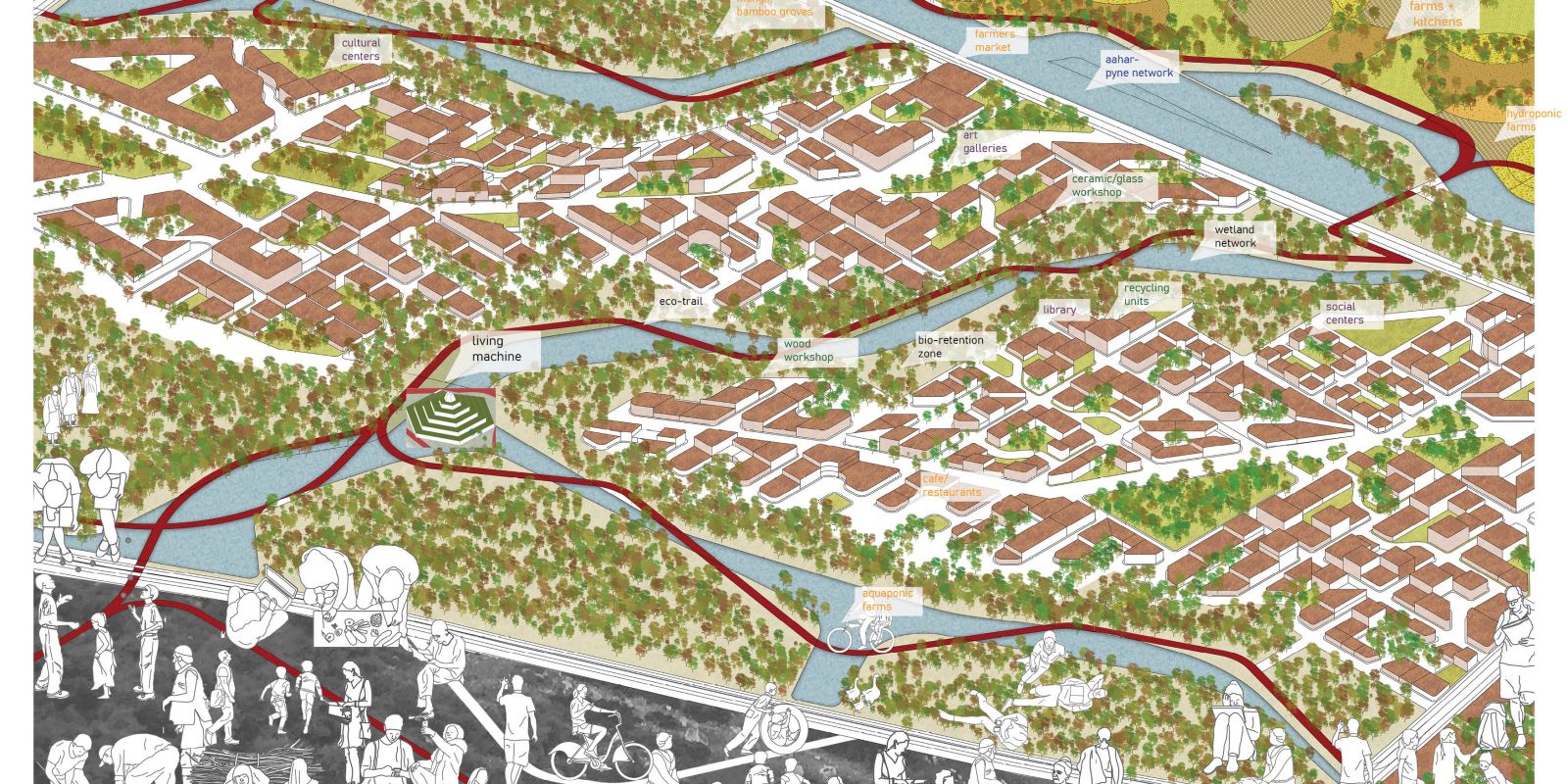Your browser is out-of-date!
For a richer surfing experience on our website, please update your browser. Update my browser now!
For a richer surfing experience on our website, please update your browser. Update my browser now!
The project is based in Rajgir, Nalanda. The design is derived using the natural flow patterns at the site, to define buildable regions. It focuses on the idea of 'inclusion' and attempts to address the question of inclusion: education through the 4 loops of ecology- water, food, waste, and energy, which become the basis of defining programs that generate new forms of learning at the city scale: an 'Ecological-Laboratory' for exchange of ideas, experiences, resources, and knowledge.

